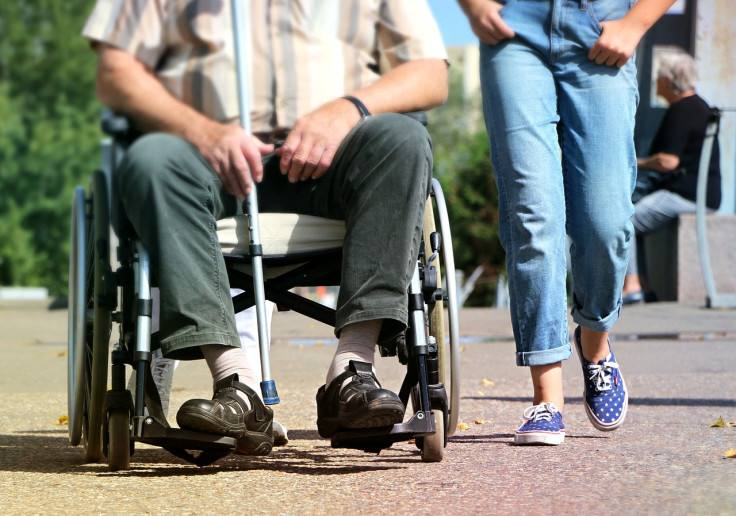DWP Overhaul PIP Update: Possible List Of Disabilities No Longer Eligible For Benefits
The government cites cost reduction and fairness as motivations

The UK's Department for Work and Pensions (DWP) has announced major proposed changes to eligibility for Personal Independence Payment (PIP).
Aimed at reducing government spending on disability support, the revisions could see 87 musculoskeletal conditions removed from PIP eligibility. If implemented, these changes could have a significant impact on those relying on PIP for essential financial assistance, with many facing reduced or even discontinued benefits.
Understanding PIP And Its Significance
Personal Independence Payment (PIP) is a benefit in the UK for people with long-term illnesses or disabilities, regardless of their income. Unlike Employment and Support Allowance (ESA), which focuses on the ability to work, PIP helps with the extra expenses caused by daily living and mobility challenges.
PIP eligibility is determined by how a condition impacts someone's ability to perform daily tasks, not just the diagnosis. However, these proposed changes hint at a policy shift, making the criteria stricter and excluding several previously covered conditions.
87 Conditions No Longer Eligible For PIP Benefits
Although the DWP hasn't released the complete list yet, reports suggest the 87 conditions under review are mainly musculoskeletal disorders. These could include:
- Osteoarthritis
- Rheumatoid arthritis
- Chronic pain syndrome
- Fibromyalgia
- Inflammatory arthritis
- Spinal problems (like degenerative disc disease and scoliosis)
- Hip and knee replacements
- Neuropathic pain conditions
- Tendonitis and bursitis
Many of these conditions are chronic and degenerative, meaning symptoms worsen over time. Critics contend that disqualifying people with these conditions could leave them struggling to manage daily life.
Who Might Be Affected?
Currently, PIP is granted to individuals over 16 who have a long-term physical or mental health condition that affects their ability to perform daily tasks or move around independently. Payments range from £72.65 to £108.55 each week for assistance with daily living, and extra funds are available for those with mobility needs.
Starting in April, those with enhanced claims could receive as much as £749 monthly, per Express. However, with the proposed review, individuals with one of the 87 conditions mentioned above may encounter stricter eligibility assessments.
Reasons For These Changes
The UK government is under growing pressure to reduce welfare spending, and disability benefits represent a significant expense. Some of the reasons the DWP has given for this overhaul include:
Increased expenses: PIP payments have grown considerably over the last ten years.
Re-evaluating eligibility: Making sure funds are allocated to individuals with severe, long-term disabilities, not conditions that might improve.
Addressing fraud and overpayments: Preventing false or inaccurate claims from burdening the welfare system.
There is hardly any fraud in the disability benefits system.
— Richard Burgon MP (@RichardBurgon) February 3, 2025
In response to my parliamentary questions, the DWP says just 0.2% of personal independence payment (PIP) spending is due to fraud.
Today I called for an end to the scapegoating of disabled people on benefits. pic.twitter.com/Z0FTMSUGeF
Standardising with other benefit systems: Aligning UK policies more closely with other welfare structures to simplify funding.
The government defends this change by stating that the new PIP rule is meant to lower spending on disability benefits and ensure that the money goes to those who need it most.
While the government claims these revisions will ensure fairness and efficiency, disability rights groups worry that numerous vulnerable individuals will be left without crucial assistance, according to Express.
Impact On Current PIP Recipients
If these changes are implemented, current recipients could be reassessed and potentially lose their benefits. Upep News suggests those receiving PIP for the affected conditions may be required to complete a new assessment to determine their eligibility under the revised rules.
New applicants will encounter more stringent requirements, making it more difficult for those with conditions on the list to qualify. Numerous claimants depend on the mobility part of PIP for transportation and independence.
Losing this benefit could hinder their ability to work, attend medical appointments, or handle everyday tasks. Some individuals are likely to move to other welfare programs, but these usually provide less financial support than PIP.
© Copyright IBTimes 2025. All rights reserved.





















